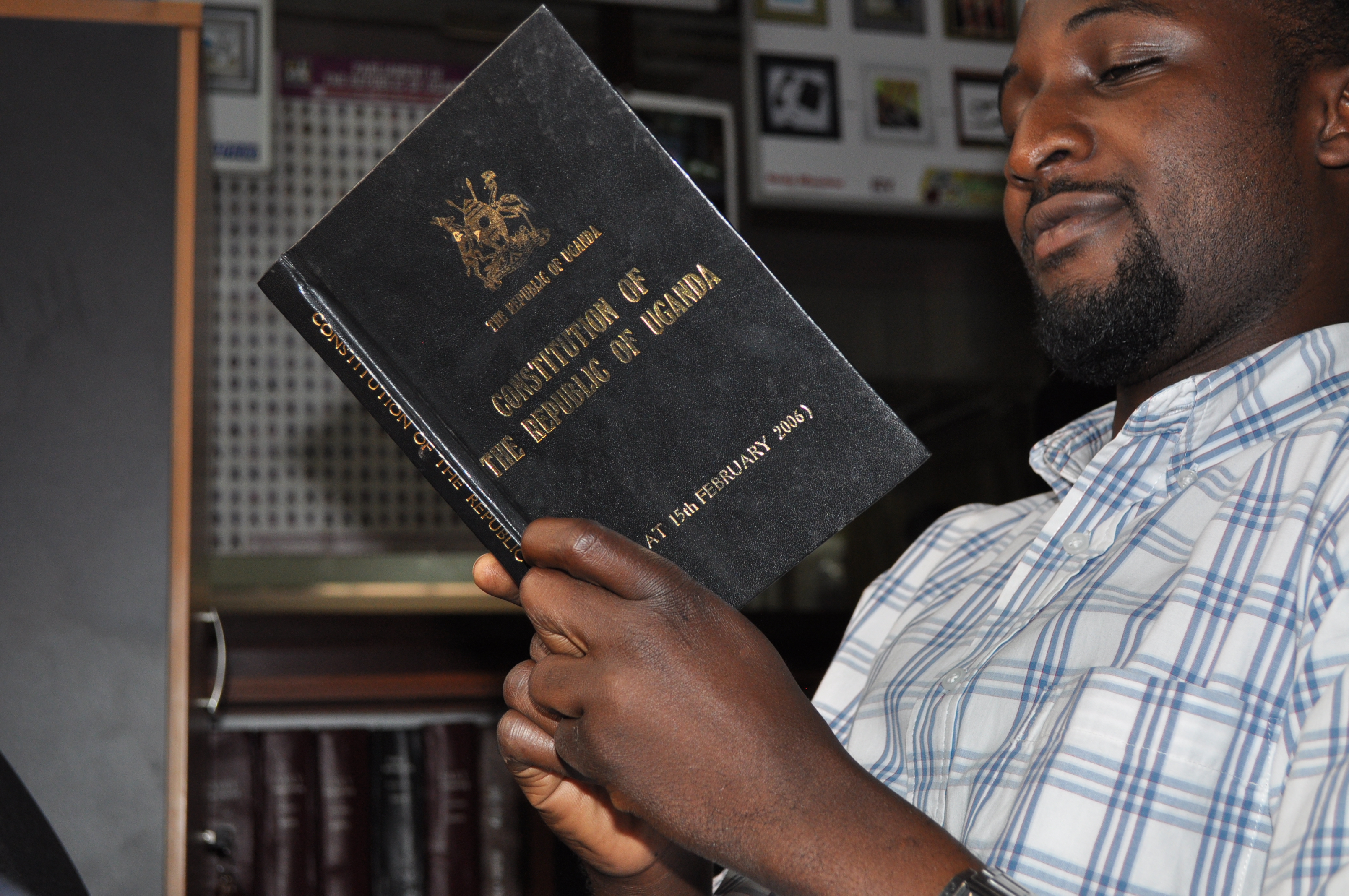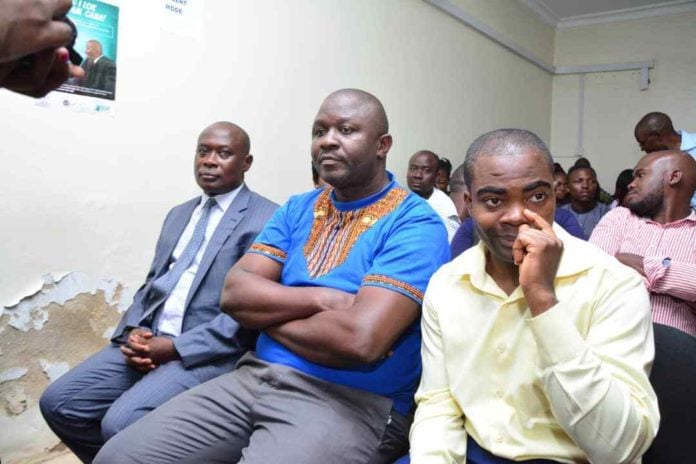Prime
Inside push to trim powers of the DPP

Director of Public Prosecutions Jane Frances Abodo. Photo/ FILE
What you need to know:
- Pressure. The population has over the years increased pressure on the investigative arms of government, but also on the Director of Public Prosecution’s (DPP) office and Judiciary. That has led to calls for the DPP to cede some ground and allow for involvement of private prosecutors in the prosecution of cases, but that was always going to be a tough one.
The Office of the Director of Public Prosecutions (ODPP) has in the last 120 days discontinued criminal proceedings in what are arguably two high profile corruption cases.
First was the withdrawal early last December of charges of uttering a false document, and conspiracy to evade tax law, which had been brought up against businessman Hassan Basajjabalaba and his brothers.
That was followed by the withdrawal early this month of charges of allowing unauthorised cargo onto a chartered plane, which had been brought up against three officials of Bank of Uganda (BoU).
Rumbles
The arrest of the BoU officials in June 2019 sent tongues wagging after it emerged that cargo belonging to private individuals and institutions had been sneaked onto a plane that the Central Bank had chartered to fly in a consignment of newly printed currency notes, but the withdrawal of the case against the trio never elicited any excitement.
It is instead the withdrawal early last December of the charges against the Basajjabalaba brothers that still has the public talking more than 90 days after the DPP made her move.
The biggest talking point has been the manner in which the DPP dispenses the duties of the office.
Contestation
In the immediate aftermath of the withdrawal of the charges against the Basajjabalaba brothers, Mr Isaac Ssemakadde of the Legal Brains Trust wrote to the DPP, Ms Jane Frances Abodo, accusing her of abusing her powers under the Constitution.
“We put it to you, therefore, that in relation to the Basajjabalaba brothers who are accused of forging a judicial document on October 6, 2010, in furtherance of a conspiracy to evade taxes to the tune of Shs20 billion, you exercised your discretionary power to enter nolle prosequi under Section 134 of the Trial on Indictments Act in bad faith, arbitrarily, corruptly and against the public interest,” Mr Ssemakadde wrote in his December 15, 2022, letter.
Cornell University describes the nolle prosequi as a Latin phrase which directly translates to “not to wish to prosecute”.
Mr Ssemakadde equates the DPP’s decision to withdraw the charges against the Basajjabalaba’s to the action of an unpredictable and aggressive Pit Bull Terrier that has turned against its owner. The DPP’s decision, he says, compromises the ability of the citizens to combat corruption and abuse or misuse of power and authority.

Legal Brains Trust CEO Isaac Ssemakadde (left) addresses journalists in Kampala on December 8, 2022. Photo/ MICHAEL KAKUMIRIZI
DPP talks back
Ms Jacquelyn Okui, the spokesperson of the office of the DPP, declined to respond to the accusations levelled against her boss, insisting that she had already issued a statement in regard to the matter.
In January Ms Okui released a statement to the effect that the case had been withdrawn to allow for investigations.
“The DPP withdrew the case with the knowledge and understanding that she is able to reinstate it upon the conclusion of investigations… The case was withdrawn from court for investigations to be concluded before prosecution” Ms Okui wrote.
However, that explanation comes across as contradictory, given that Ms Abodo was the prosecutor who on March 6, 2013, presented an amended charge and informed the judge at the Anti-Corruption Court that “investigations had been completed”.
‘Power tussle’
According to Mr Ssemakadde, the office of DPP was created and is meant to operate under the dispensation that grants her office prosecutorial independence. He does not name anyone in particular, but insists that the office has over the years become the subject of manipulations and compromises aimed at serving a few selfish interests.
“Unfortunately, since 1995 the DPP position holders look to the Constitution only for what’s beneficial to them and the regime, while ignoring or undermining the new obligations it imposes. Whenever they want to justify or sidestep oppression, tyranny, exploitation and sheer abuse or misused of power, they sheepishly cite the 1971 laws as their source of power or authority,” Mr Ssemakadde says.
He says the DPP often invokes the provisions of both the Magistrates Courts Act of 1971 and the Trial and Indictment Act of the same year.
This, he says, has affected the need to modify the relevant laws and regulations to conform to the provisions of the 1995 Constitution.

Early last December, the DPP dropped charges brought up against businessman Hassan Basajjabalaba (R) and his brothers.
Private prosecution suffers
The population has over the years increased putting unprecedented pressure on the police and other investigative arms of government.
It has also put pressure on the DPP’s office and the Judiciary. That has led to calls from certain circles for the DPP to cede some ground and allow for increase involvement of private prosecutors in the prosecution of cases, but that was always going to be a tough one.
In January 2020, lawyer Dan Ruhweza came up with a draft national prosecution policy, which aimed at delivering “prosecutions that ensure justice for all”, but some of the recommendations seemed to lay emphasis on the need for further tightening the DPP’s dominance in the area of provision of prosecution services.
Arguing that the “proliferation of institutions that have prosecutorial mandate and functions” had led to a lack of clarity that “has created ambiguity in the institutional arrangements within the (justice, law and order sector) JLOS sector”. Ruhweza recommended all prosecution agencies “conduct their prosecutorial work in collaboration with” and report to the DPP.
The draft policy was never adopted. It was not possible to establish why, but chances are that it was always going to run into trouble due the emphasis that it had placed on among others “prosecution-led investigations”, a matter that Justice Andrew Bashaija had pronounced himself on the Sundus Exchange and Money Transfer Limited case.
Justice Bashaija, while giving his ruling on August 20, 2019, in a suit that had been filed against the Attorney General by Ms Sundus Exchange and Money Transfer Limited and eight others, ruled that Article 42 of the Constitution “recognises the right of any person to apply to a court of law for judicial review against public bodies and/or agencies”.
“… as it pertains to investigations, the DPP’s function under the Constitution, is specifically to direct the police to investigate and to receive reports of investigation from the police; and not to conduct investigations. The duty to investigate is the constitutional preserve of the police…” Justice Bashaija ruled.

A man reads the Constitution of Uganda. Some analyst say it is necessary to amend the Constitution to trim the powers of the DPP.
Legal fight
That would suggest that the adoption of a recommendation to the effect that would have laid emphasis on “prosecution-led investigations”, would have set the ground for a legal fight. That never materialised, but one is in the offing.
Mr Ssemakadde, invoking the provisions of paragraph XXVI of the National Objectives and Directive Principles of State Policy as laid out in the Constitution, has already notified the DPP of his intention to drag her as a person and the office she holds to court.
Justice Bashaija in his judgement ruled that, “…the exercise of the DPP’s mandate and powers are subject to judicial review” and that “judicial review is not concerned with the merits of the decision per se but with the decision-making process”.
Reforms
Constitutional lawyer Dan Wandera Ogalo is supportive of the idea of challenging the DPP’s decisions in court, but hastens to add that this might not be a long-term solution. What is required, he says, are operational reforms.
Giving the example of a case that was contained in a Public Service Review and Reorganisation Commission Report of 1990 where the minister of Internal Affairs directed the police not to effect the arrest on the orders of the DPP of a Cabinet colleague, Mr Ogalo argues that it is necessary to carry out reforms that empower offices such as the DPP to be more independent.
“The DPP depends heavy on the CID yet she has no power of control over CID personnel. While the DPP is under the ministry of Justice, the CID is part of police under the Ministry of Internal Affairs. If police officers disobey her directions, she can only report instead of disciplining. We should consider whether CID should not be transferred to the Ministry of Justice and Constitutionals Affairs to ensure orders of DPP are complied with,” Mr Ogalo argues.
Constitutional amendment
Mr Edmund Wakida, an associate at Lex Uganda, is not opposed to reforms or dragging the DPP to court, but hastens to add that those are short-time fixes that will not end the contestations around the DPP’s powers to determine who gets and who does not get prosecuted.
“The courts have been struggling with that problem of the DPP. We have argued those things over a long time. What you are challenging the DPP on (in court) is now whether there was a right or wrong in criminal action. It is only whether the suit can be sustained in a criminal court. If the DPP drops the charges, she will have dropped them. He has the final say,” Mr Wakida says.
Mr Wakida insists that what is necessary is to carry out a major surgical operation to a Constitution and legal framework that gives so much power to the DPP and the Executive arms of government.
“Our legal provisions have final says so that there is a termination. You cannot continue. You have no further court that you can go to and file a complaint. That will not be because no crime was committed, but simply because the law forbids you to go any further,” he argues.
In the circumstances, Mr Wakida says, it is necessary to amend the Constitution to trim the powers of the DPP.
“The Constitution in its wisdom or lack of it, decided that the DPP shall have the final say on public prosecutions. In the absence of constitutional amendment that will curtail those powers that man or woman who is holding that office can determine or terminate criminal prosecutions of anybody,” Mr Wakida concludes.
The process of reforms take quite a while around here. It might be while before Ugandans see reforms to that effect.




